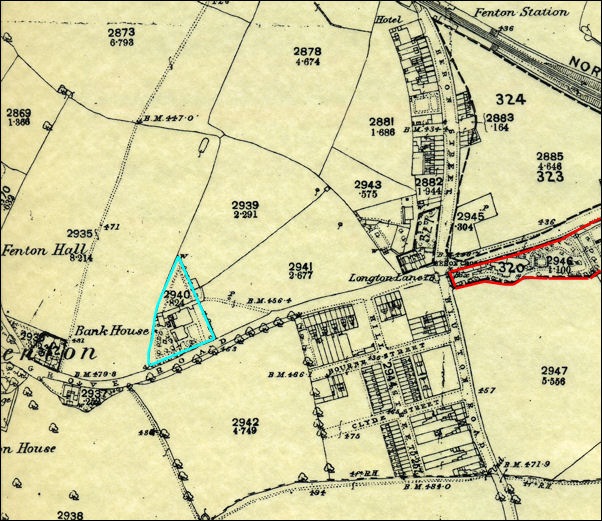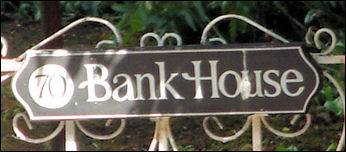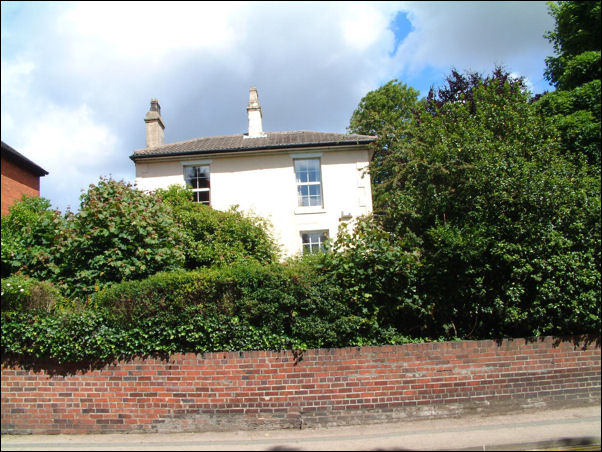Grove Road, Heron Cross,
Great Fenton
Development of the housing:
There
were some scattered houses at Great Fenton by 1832, including Great Fenton
Hall, Great Fenton House, Grove House, Bank House, and Heron Cottage.
At Great Fenton part of the area known as
Heron Cross had also been built up by the late 1870's, presumably in
connexion with the Glebe Colliery which lay to the north. Bourne Street,
Clyde (now Tweed) Street and Hill (now Derry) Street had also been laid
out by the late 1870's at the south-west of the crossroads but only
partially built up.
Scattered building of terraced houses
between Heron Cross and the centre of Fenton had taken place on the west
side of Church (now Christchurch) Street and its continuation Heron
Street. A few terraced houses had also been built by the late 1870's along
the north side of Duke Street which leads from Heron Cross to Lane Delph.

1878 OS map of Heron
Cross crossroads
The blue marked area is Bank House, and the red was Heron
Cottage.


Bank House, Grove Road, Heron Cross
Bank House is shown on the 1878 OS map
Heron Cottage:
Charles Mason at the Fenton Potteries, adjacent to the 1802 railway and
subsequently at Victoria Road, achieved architectural prominence and
introduced the concept of fireproof construction at his works; this pottery was a
considerable improvement on his earlier premises, the Minerva China Works
at Lane Delph.
Scriven described them as "well ventilated, light, airy and
commodious."
Unfortunately the introduction of plate making machinery led to
reprisals in the 1842 Chartist riots and his home, Heron Cottage (marked
in red on the above map) on the corner of Blurton Road and Duke Street,
was sacked and subsequently replaced by terraced housing.
  
next: the crossroads
at Heron Cross
previous: 1775 & 2008 maps of Great Fenton
|